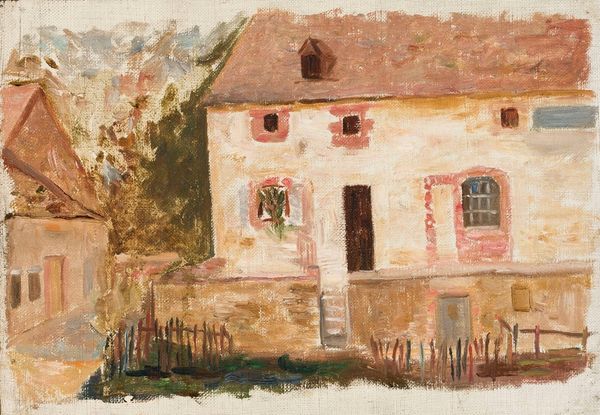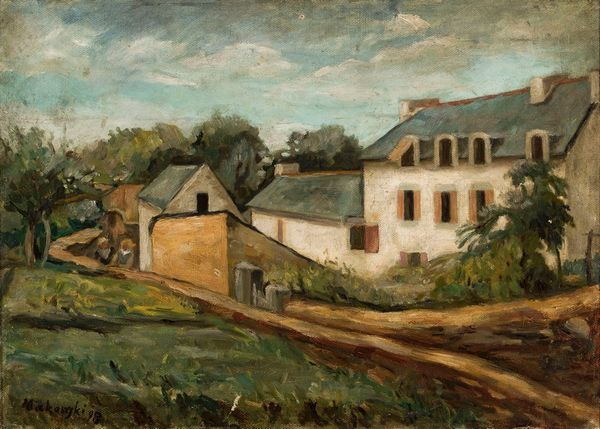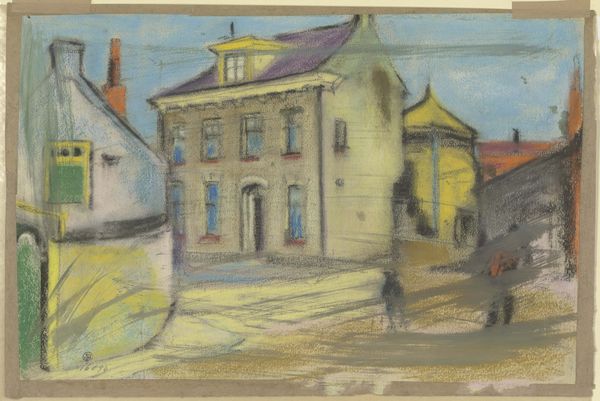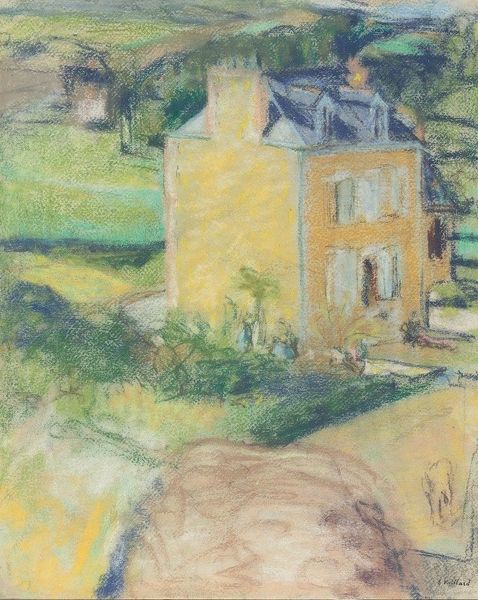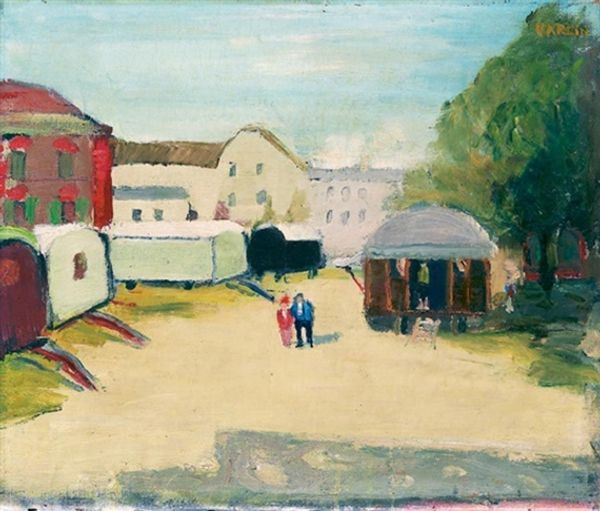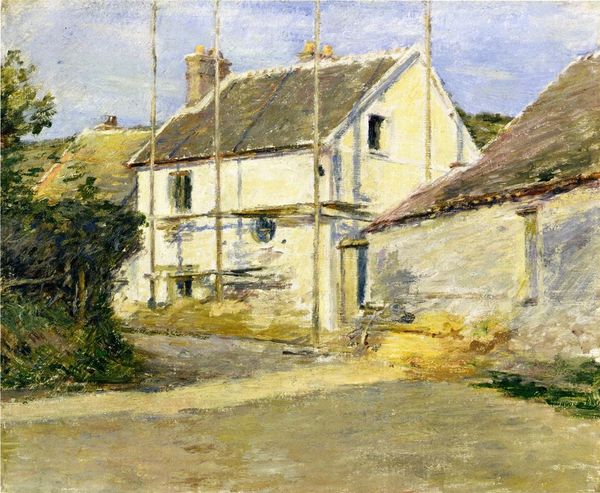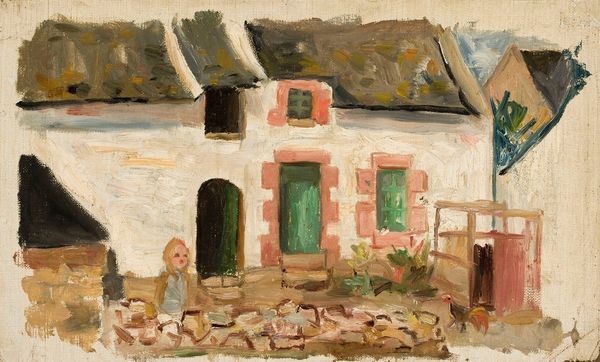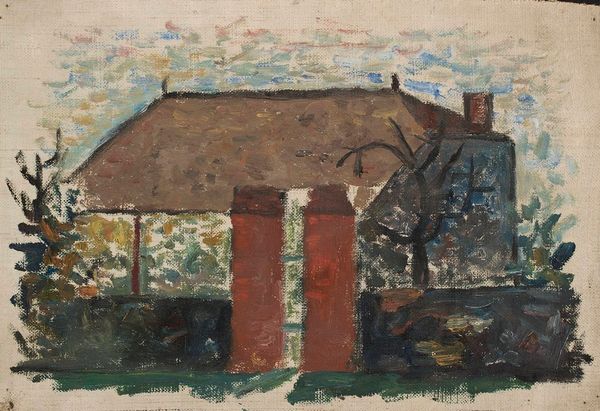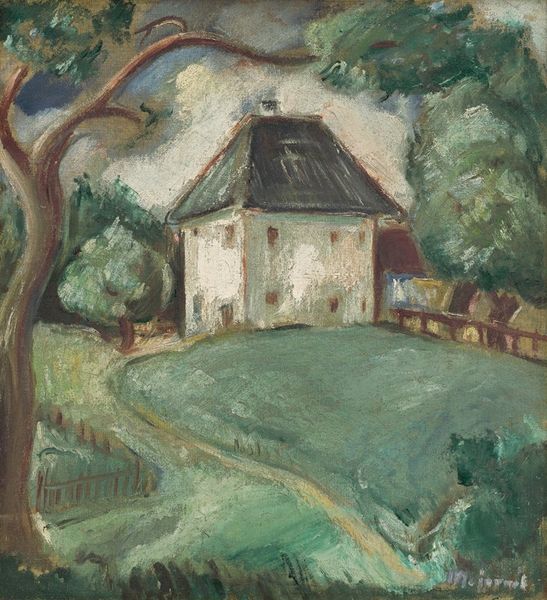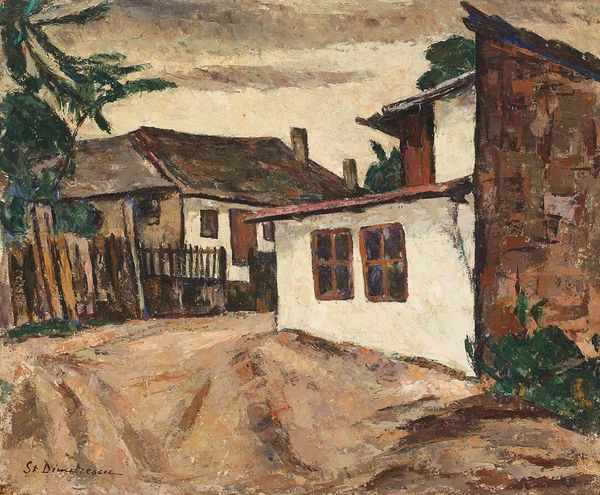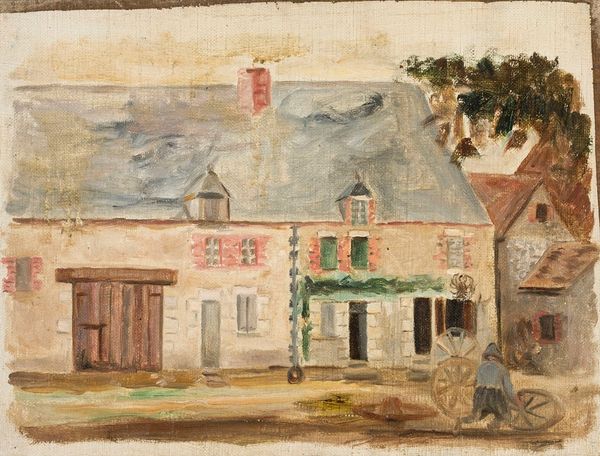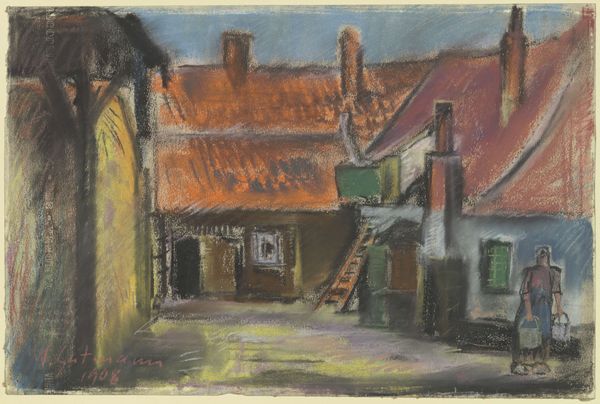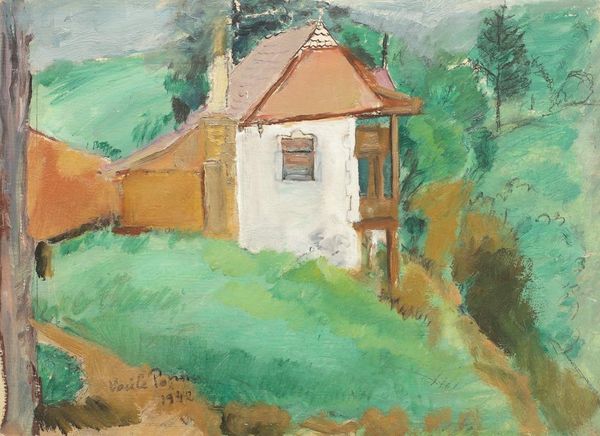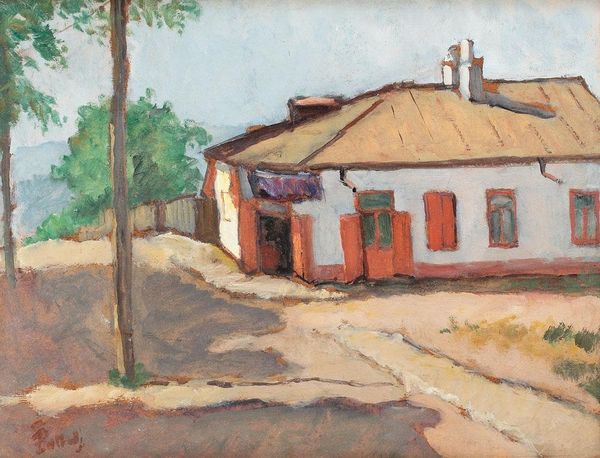
painting, oil-paint
#
painting
#
oil-paint
#
landscape
#
german-expressionism
#
oil painting
#
expressionism
#
cityscape
#
realism
Copyright: Public Domain: Artvee
Editor: Here we have Tadeusz Makowski’s "Brick House with an Annex," painted in 1924 using oil paint. There's a distinct focus on the textures of the brick and surrounding foliage... What do you see in this piece? Curator: Immediately, I'm drawn to the materiality. Look at the thick impasto—the very palpable presence of the oil paint. It's not just depicting a house, but foregrounding the process, the physical act of applying paint. What kind of labor and skill went into creating those layered surfaces, reflecting not just an image but a certain social history, a way of working? Editor: That’s interesting! I hadn't considered the 'labor' aspect so explicitly, only thought of it more like surface texture... So, the fact that this looks like house connects with larger production? Curator: Exactly! We see what seems like a humble abode; not palatial, perhaps a tradesman’s dwelling. But that then connects with how we assess this in relation to 'high' art? Doesn't it challenge conventional notions of 'skill' when a 'craft' like bricklaying informs the composition? Editor: Now I am noticing, this kind of elevates the 'everyday'. But is it about praising labour, or exposing its hardships, perhaps? Curator: That ambiguity is critical, isn’t it? We need to reflect on what art *does* as much as what it represents. Are we simply looking at paint applied skillfully or confronting societal hierarchies embedded within materiality? It definitely calls to examine these complex socio-economic fabrics of early 20th-century life. Editor: This changes my view of it significantly! Before I was just thinking: nice-looking rustic painting; but understanding *how* it was produced forces me to understand the historical position more. Thanks! Curator: Indeed, focusing on the means unveils stories we would normally gloss over.
Comments
No comments
Be the first to comment and join the conversation on the ultimate creative platform.
